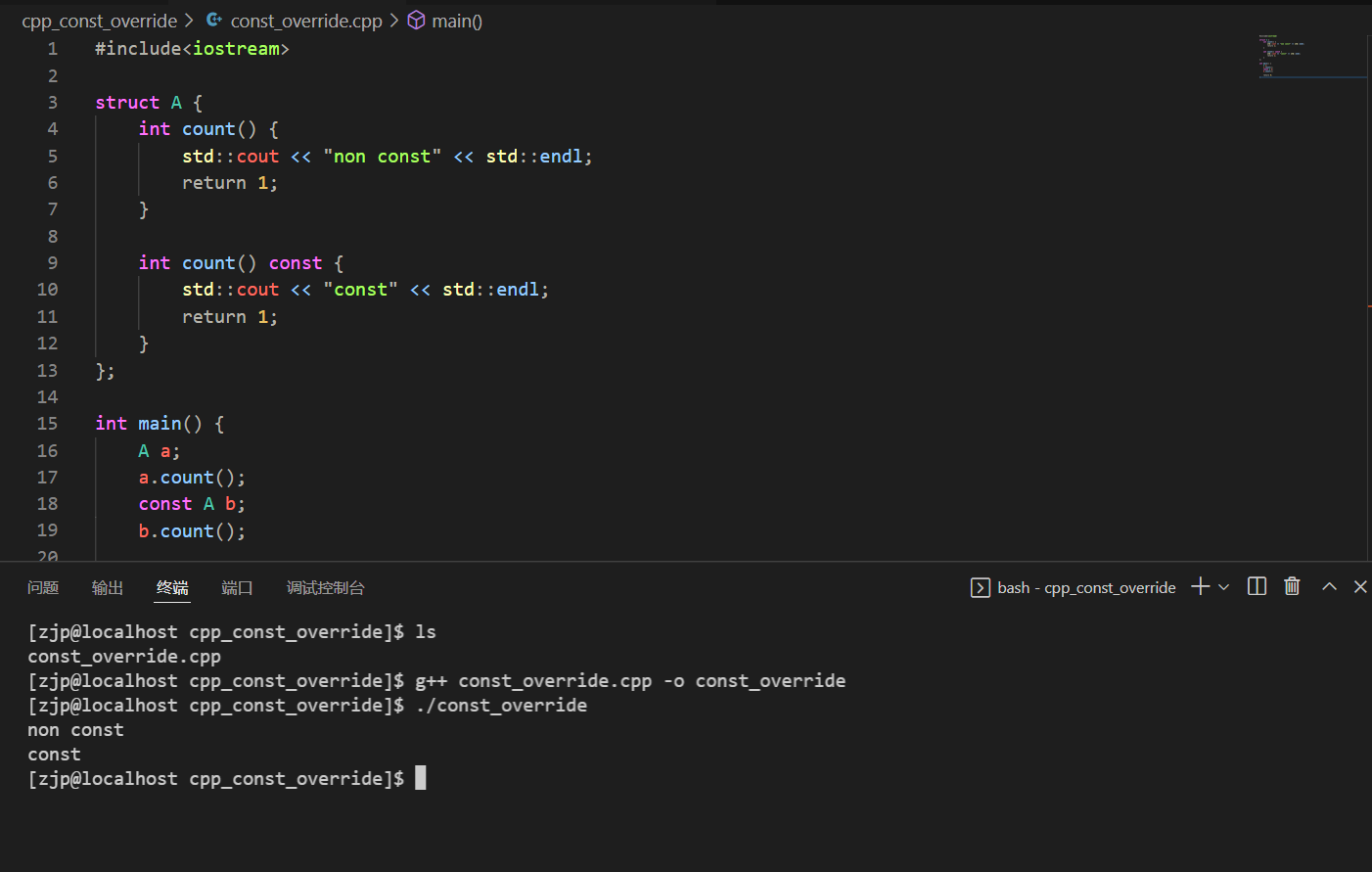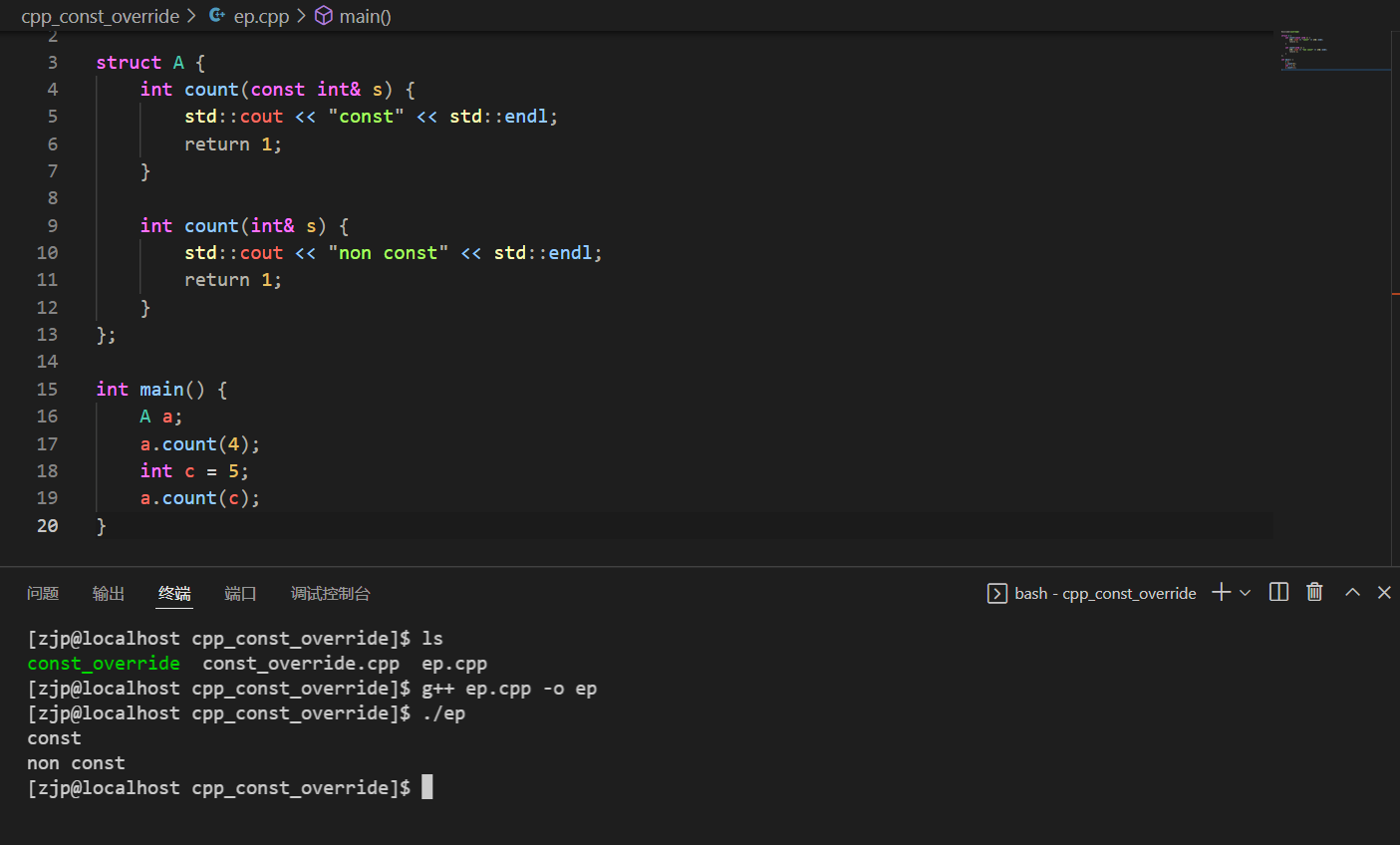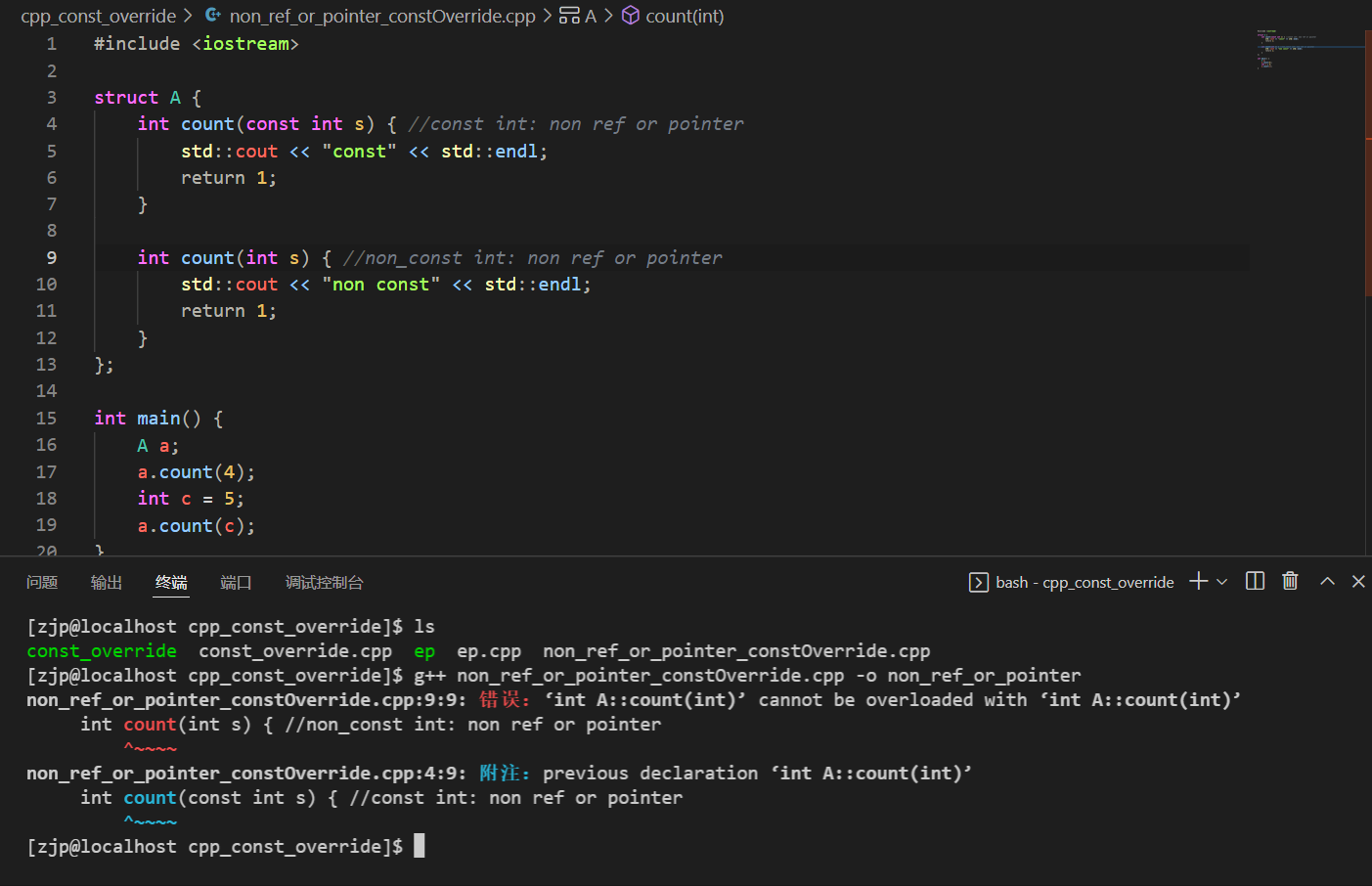C++ const 重载¶
c++重载一般有:
在函数名相同时, * 参数类型不同; * 参数个数不同; * 参数类型和个数都不相同 * 在上述情况下,返回值不同(单纯的返回值不同不能作为重载依据)
const重载¶
重载
struct A {
int count() {
std::cout << "non const" << std::endl;
return 1;
}
int count() const {
std::cout << "const" << std::endl;
return 1;
}
};
int main() {
A a;
a.count();
// 相当于:count(A* a) 传入一个this指针
const A b;
b.count();
}
这段代码的输出我们来实践一下:
首先使用VScode连接到远端服务器,创建一个cpp文件,并执行;

输出为:
上述代码相当于:
重载
struct A {
int count(A*) {
std::cout << "non const" << std::endl;
return 1;
}
int count(const A*) const {
std::cout << "const" << std::endl;
return 1;
}
};
int main() {
A a;
a.count();
// 相当于:count(A* a) 传入一个this指针
const A b;
b.count();
}
下面是编写真正的const重载:
ep.cpp
struct A {
int count(const int& s) {
std::cout << "const" << std::endl;
return 1;
}
int count(int& s) {
std::cout << "non const" << std::endl;
return 1;
}
};
int main() {
A a;
a.count(4); // 4是常量,调用参数为const的重载
int c = 5; // c是变量,调用非const版本
a.count(c);
}

输出如下:
结论¶
不只是参数类型和个数不同会产生重载,const修饰的参数也会有重载
问题:一定要指针或者引用类型时重载¶
只有const修饰的指针或者应用才可以作为重载的依据
以下举个例子:
non_ref_or_pointer_constOverride.cpp
struct A {
int count(const int s) { //const int: non ref or pointer
std::cout << "const" << std::endl;
return 1;
}
int count(int s) { //non_const int: non ref or pointer
std::cout << "non const" << std::endl;
return 1;
}
};
int main() {
A a;
a.count(4);
int c = 5;
a.count(c);
}

编译错误
为什么一定要指针或者引用类型时重载才可以呢?
解释:
”When we pass by reference or pointer, we can modify the value referred or pointed, so we can have two versions of a function, one which can modify the referred or pointed value, other which can not.“
这句话的意思是:
当我们通过引用或指针传递时,我们可以修改引用或指向(指针指向)的值,因此我们可以有两个版本的函数,一个可以修改引用或指向的值,另一个不能。
上述强调的是”const修饰的指针或者引用“:
- const修饰的指针: const修饰的指针是常量指针,即底层const,该指针指向的值是不可修改的,所以可以使用const修饰的指针用于区分普通指针(可修改)和const修饰的指针作为参数传递的重载版本;
- const修饰的引用: 普通引用底层是指针常量,指针指向不可修改,指针指向的值可以修改,而const修饰的引用则是”常量指针常量“,即指针的指向不可修改,指针指向的值也不可以修改,所以可以用于区分重载版本